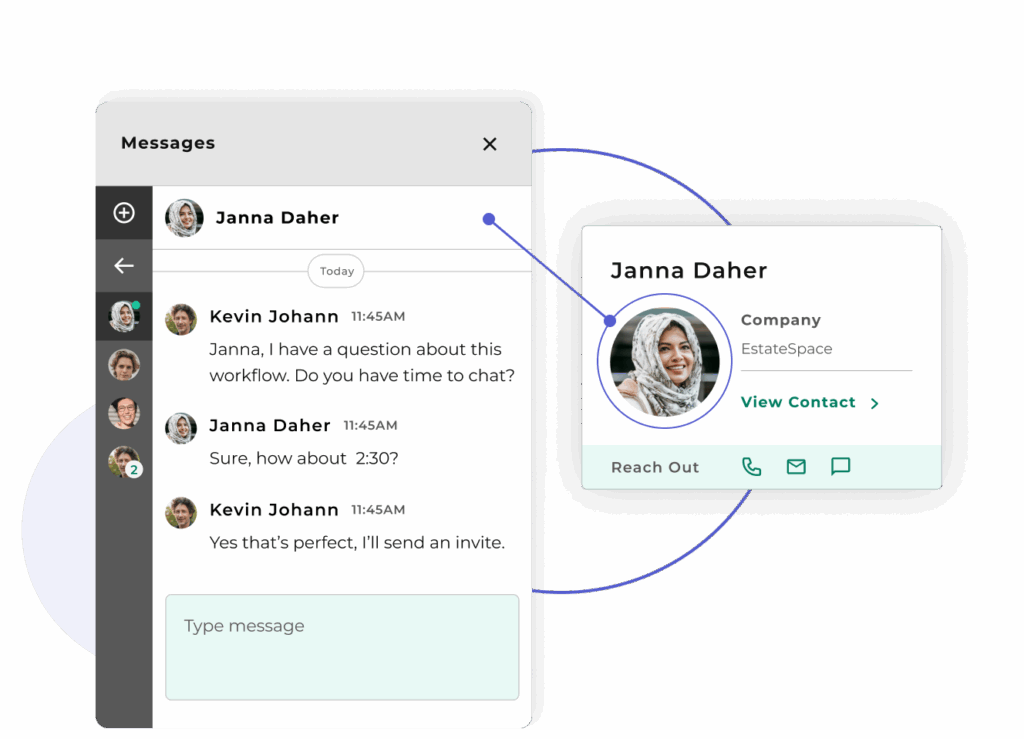Mastering Effective Communication Skills: The Foundation of Elite Estate Management
When you’re managing multi-million dollar estates and serving ultra-high-net-worth families, your technical expertise is just the starting point. Moreover, developing effective communication skills becomes the differentiator that transforms routine estate management into trusted advisory relationships. Furthermore, in this high-stakes environment, every interaction shapes your professional reputation and determines whether clients view you as an indispensable partner or replaceable service provider.
Additionally, the families and family offices you serve expect communication that matches the sophistication of their other professional relationships. Therefore, mastering these effective communication skills isn’t optional—it’s essential for career advancement and client retention in the luxury estate management sector.
Why Standard Communication Approaches Fail with Elite Clients
Most estate managers communicate reactively, responding to issues after they arise rather than proactively managing client relationships. However, this approach creates anxiety among high-net-worth clients who expect anticipatory service. For example, waiting until a problem occurs to communicate shows poor planning and damages trust.
Moreover, effective communication skills require understanding that these clients often manage complex schedules and multiple properties across different time zones. Therefore, your communication must be both strategic and respectful of their time constraints. Additionally, the stakes are higher—miscommunication can result in significant financial losses or damage to irreplaceable assets.
Furthermore, many estate managers fail to recognize that asset managers and family office executives expect institutional-grade reporting and communication standards. Consequently, informal or inadequate communication styles undermine your credibility and professional positioning.
According to HR.com’s analysis of luxury industry requirements, “One of the most important skills you need in the luxury industry is the ability to communicate well and relate to others effortlessly.” Furthermore, this expertise becomes even more critical when managing relationships with high-net-worth individuals and industry professionals in estate management contexts.
The Foundation: Developing Strategic Effective Communication Skills
Your effective communication skills must begin with understanding the unique dynamics of managing high-value properties for sophisticated clients. Furthermore, these clients evaluate you not just on what you communicate, but how, when, and through which channels you deliver information.
Essential Communication Principles:
- Anticipatory Communication: Identify and address concerns before clients raise them
- Precision in Language: Use clear, professional terminology that demonstrates expertise
- Structured Information Delivery: Present complex information in digestible, actionable formats
- Cultural Sensitivity: Adapt communication styles to respect diverse client backgrounds and preferences
- Confidentiality Awareness: Maintain discretion appropriate for high-profile clients
Moreover, developing these effective communication skills requires understanding that your role extends beyond estate management to relationship stewardship. Therefore, every communication opportunity should reinforce your value proposition and professional competence.
Advanced Strategies for Effective Communication Skills in Practice
Proactive Status Reporting
Weekly Executive Summaries: Develop concise reports that highlight key developments, upcoming actions, and potential concerns. Additionally, structure these communications to provide essential information without overwhelming busy executives.
Quarterly Strategic Reviews: Present comprehensive analyses that connect estate management activities to broader wealth preservation and asset optimization goals. Furthermore, these reviews demonstrate your strategic thinking capabilities.
Seasonal Preparation Communications: Anticipate seasonal needs and communicate preparatory actions well in advance. Moreover, this proactive approach showcases your planning abilities and prevents emergency situations.
Crisis Communication Excellence Using Effective Communication Skills
When issues arise, your effective communication skills become crucial for maintaining client confidence. Additionally, how you handle problems often determines whether clients increase or decrease their trust in your capabilities.
Immediate Response Protocol:
- Acknowledge the issue within 2 hours of discovery
- Provide initial assessment and containment actions taken
- Outline investigation timeline and next steps
- Schedule follow-up communication regardless of resolution status
Resolution Communication:
- Present complete analysis of root causes
- Detail corrective actions implemented
- Explain preventive measures to avoid recurrence
- Document lessons learned for continuous improvement
Technology-Enhanced Communication
Modern project managers and estate professionals leverage technology to enhance their effective communication skills. Furthermore, digital platforms enable more sophisticated client interactions and better information management.
Digital Communication Benefits:
- Real-time project updates and photo documentation
- Automated scheduling and reminder systems
- Secure client portals for sensitive information
- Performance dashboards and analytics
Additionally, estate management platforms can significantly enhance your communication capabilities while demonstrating your commitment to modern, efficient service delivery.

Tailoring Your Effective Communication Skills to Different Stakeholders
Family Office Communications
Risk managers and managing directors expect institutional-grade communication that connects estate management activities to broader risk mitigation and asset preservation strategies. Furthermore, your effective communication skills must demonstrate understanding of their fiduciary responsibilities.
Key Communication Elements:
- Quantitative risk assessments and mitigation strategies
- Compliance status updates and regulatory considerations
- Performance metrics tied to asset preservation goals
- Budget variance analyses and cost control measures
Direct Client Communications Using Effective Communication Skills
Property owners often prefer communications that focus on lifestyle preservation and enhancement rather than technical details. Moreover, effective communication skills in this context require translating complex estate management activities into client-relevant outcomes.
Client-Focused Messaging:
- Property readiness for occupancy and events
- Enhancement opportunities that improve enjoyment or value
- Preventive measures that protect cherished assets
- Service provider performance and reliability updates
Professional Network Communications
Your interactions with vendors, contractors, and other service providers also require refined effective communication skills. Additionally, these relationships directly impact your ability to deliver exceptional client service.
Professional Standards:
- Clear scope definitions and performance expectations
- Timely feedback and performance evaluations
- Professional development opportunities and training requirements
- Collaborative problem-solving approaches
Measuring and Improving Your Effective Communication Skills
The most successful estate management professionals continuously refine their communication approaches based on client feedback and measurable outcomes. Furthermore, developing effective communication skills is an ongoing process that requires regular evaluation and improvement.
Communication Effectiveness Indicators:
- Client retention and satisfaction scores
- Proactive vs. reactive communication ratios
- Response time metrics and acknowledgment rates
- Referral generation and professional recommendations
Additionally, seeking regular feedback from clients and colleagues helps identify areas for communication improvement and ensures your approach remains aligned with client expectations.
The Professional Impact of Mastering Effective Communication Skills
When you develop sophisticated effective communication skills, several important outcomes emerge. First, clients begin viewing you as a strategic partner rather than just a service provider. Additionally, you reduce client anxiety and increase their confidence in your management capabilities.
Moreover, strong effective communication skills position you for career advancement within family offices and high-end estate management firms. Furthermore, clients often increase their investment in estate services when they have confidence in their manager’s communication and planning abilities.
Professional Benefits Include:
- Enhanced client trust and confidence
- Increased referral opportunities
- Premium pricing justification
- Career advancement opportunities

Ready to Elevate Your Communication Excellence?
Mastering effective communication skills transforms your professional relationships and distinguishes you in the competitive luxury estate management market. Furthermore, these skills become increasingly valuable as you advance in your career and take on more sophisticated client relationships.
Start by implementing one new communication practice each month and measuring its impact on client satisfaction. Additionally, seek feedback from trusted clients and colleagues to identify your most impactful communication improvements.
Schedule a consultation to discover how modern communication tools and estate management platforms can enhance your client relationships and professional effectiveness.
Effective communication skills form the foundation of exceptional estate management relationships. Moreover, sophisticated communication approaches differentiate elite professionals from basic service providers, creating lasting value for both clients and service providers.



